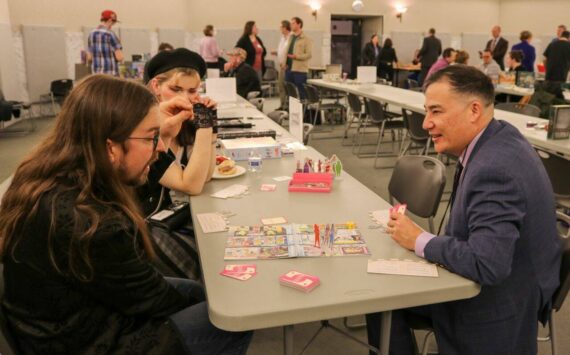Plans to allow a private contractor to reopen a shuttered 50-megawatt steam plant located on the tideflats and generate electricity by burning the citys garbage were met with wide opposition from among more than 30 people during yesterdays Tacoma City Council Environment and Public Works Committee meeting.
Citizens and community leaders raised concerns over the health risks posed by burning garbage near populated areas (particularly Northeast Tacoma), while city leaders bristled at the costs associated with the plan, which calls for the city to pay as much as $750,000 for the first phase of a study to measure the viability of the operation, and as much as $2 million to create a scope of work, outline a cost proposal, and make improvements to the facility during a second phase.
Ive taken those votes that led to $7.1 million losses, said Tacoma Mayor Bill Baarsma, referring to an earlier deal with NRG Energy, Inc., a steam plant operator with similar plans for the site. In 2003, the deal between the city and NRG fell apart, and lawyers for the city have tried to recover costs since. I was at the meeting when people in expensive suits told us they would do the job for us, added Baarsma, who called the experience a fiasco.
The new plan was submitted by Energy Answers Corporation (EAC), an Albany-based waste-to-energy corporation, after the city prepared a Request for Proposal. Five companies submitted proposals, but EACs plan stood out because of its commitments to community participation and environmental excellence, as well as comprehensive approach, according to Al Tebaldi, the citys solid waste division manager. EAC has a desire to get those issues and concerns out and addressed, he said, as well as a desire to work with area industries to talk about a sustainable approach.
Tebaldi told the committee that the city would front costs for the initial phases, but that EAC would pay for $50 million of capital improvements if the company decided to move forward.
Tebaldi added, Admittedly, there are a lot of unanswered questions.
I remain a skeptic, said Councilmember Rick Talbert. Im concerned about the amount of money we would throw into this thing. Talbert pointed to the companys willingness to invest $50 million, and asked why the city should even be involved in the deal. If its that great, maybe they should site this on their own and the city should get out of the way.
Mayor Baarsma added, If EAC wants to run the plant, the company ought to foot the bill for the feasibility study.
Councilmember Julie Anderson asked what risks the city faced if it decided not to fund the study and turn down a deal with EAC.
Tebaldi pointed to the rising volume of garbage that the city currently generates, and the need for waste management solutions. He also expressed concern over the message the city would send about its waste management practices. Were basically showing that Tacoma is not willing to move forward on alternate resources, he said. We would show a lack of ability to invest in options.
Still, public opposition to the plan was overwhelming.
Tacoma resident Charles Creso reviewed the over whether EAC would be willing to excuse the city from any health or pollution claims that resulted from burning the citys garbage. He also noted that the proposal allowed for EAC to burn the garbage from cities located throughout Pierce County.
Northeast Tacoma resident Marilyn Weed expressed concern for the plants location. It needs to be far away so that its not harmful to people, she said. Maybe incineration is the answer, but not in this location.
Jake Fey, chairman of the Tacoma Public Utilities board, cautioned that the city was not considering all its options for waste management. I would step back, hire a consultant, and evaluate all the alternatives, he said. Fey also questioned EACs plans for selling the energy it creates from burning the waste. We have to look at the electricity market in the Pacific Northwest, he explained. Were in a surplus for energy, and plants have closed down. Where does this vendor plan to sell its power?
There are other solutions for waste management, said former councilmember Bob Evans, who recalled earlier discussions with NRG to convert the plant into a waste-to-energy site. This conversation sounds familiar. It was ill-advised from the beginning, and always has been.
The committee plans to continue discussion of the idea at its meeting on Aug. 24.







